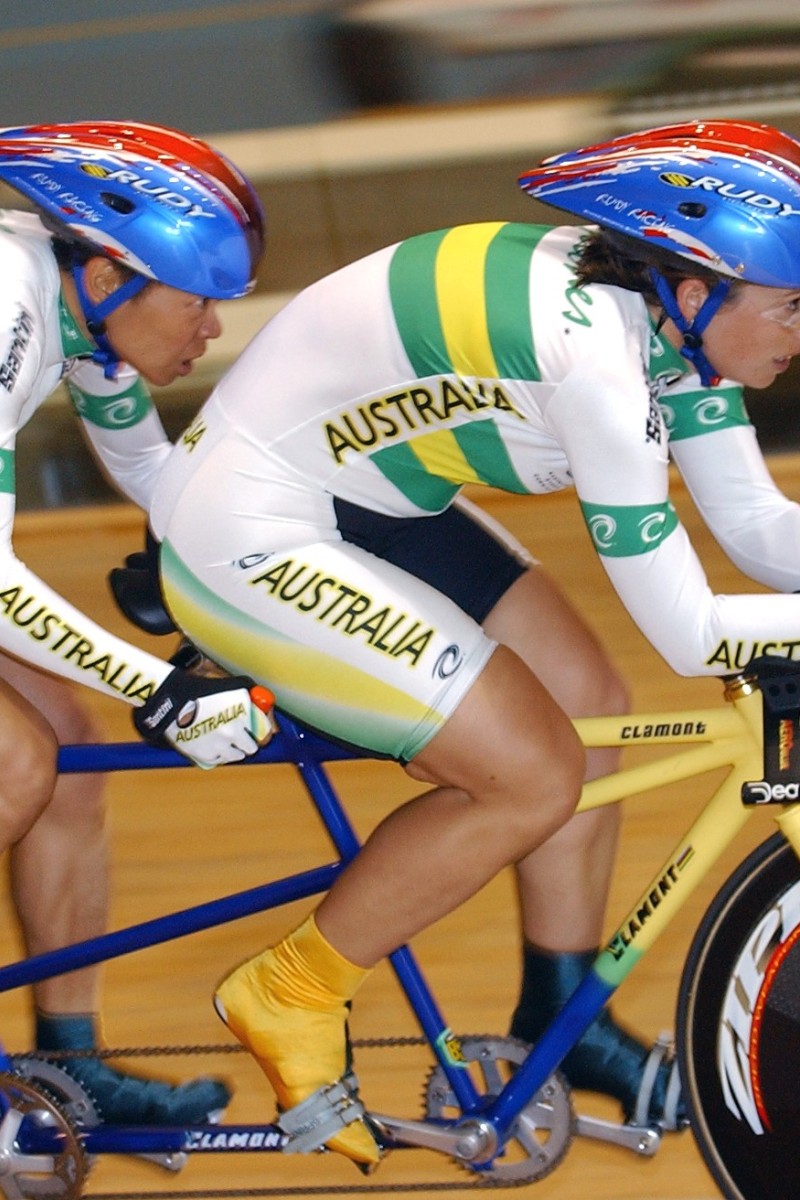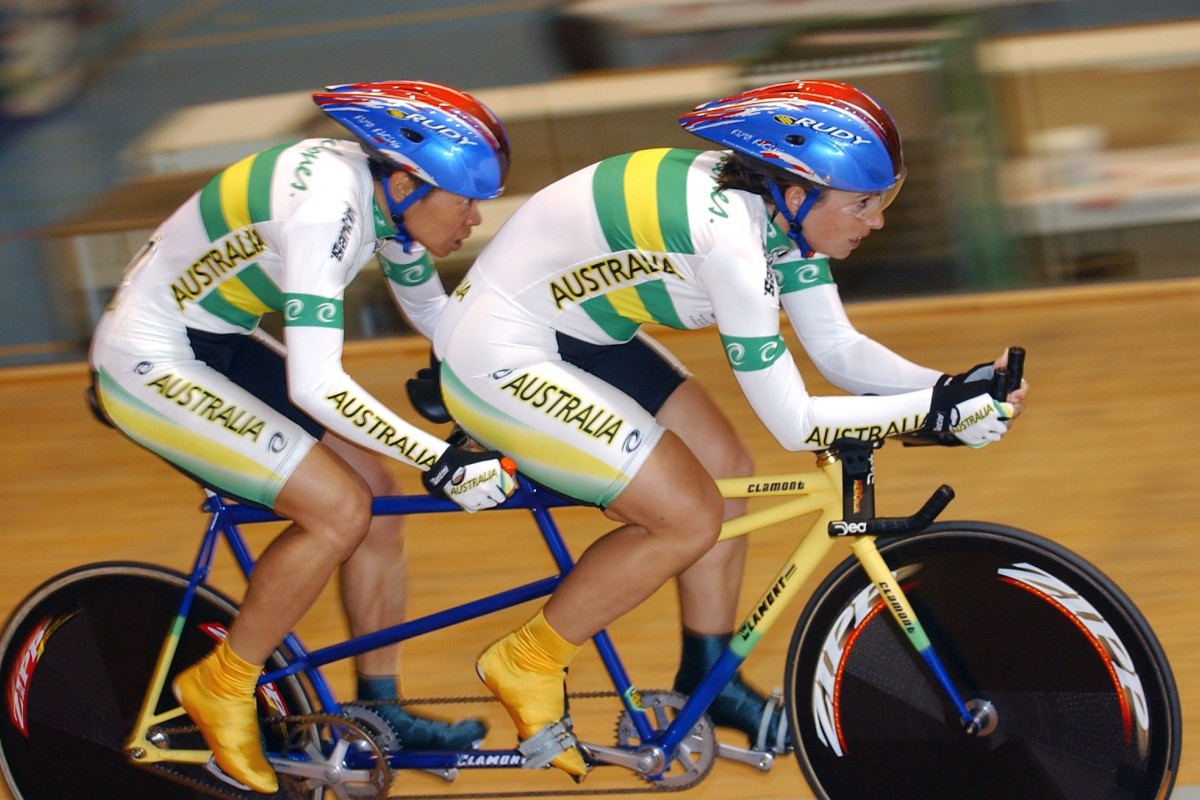
The cyclist won a total of six medals at the 2004 and 2008 Paralympic Games and now hopes to inspire others with her story
 Lindy Hou (left) competes in the tandem cyclist event in 2006.
Lindy Hou (left) competes in the tandem cyclist event in 2006.Paralympic gold medallist Lindy Hou has a story fit for a Hollywood movie script.
Born and raised in Hong Kong, Hou developed a degenerative eye disease called retinitis pigmentosa after moving to Australia at age 15. She was declared legally blind by the age of 36.
But she didn’t let that get her down, as she went on to win a gold medal at the 2004 Paralympics in Greece, and won a total of six medals at both the 2004 Games and the 2008 Games in Beijing. She has also won several other tandem cycling championships and was an elite triathlete.
Now, at 58, Hou is a full-time motivational speaker and massage therapist.
She has one question for young people: “What’s holding you back?”
“My motto has always been ‘once you stop dreaming, you stop living’,” Hou tells Young Post during a visit to her former school, Tak Ching Secondary School.
“It was really difficult at first, but I realised if I stayed miserable all the time, no one would want to be around me,” says Hou.
Hou started cycling and running triathlons competitively before she went completely blind, but as her vision got worse, she noticed her performance started to suffer.
“I was always a powerful cyclist, so I would do really well on straight roads and going uphill,” explains Hou. “But because my vision was so bad, I would get really nervous going fast downhill and the other cyclists would overtake me, so all of the effort I made during the uphill bits would be lost.”
“As my vision got worse, I started crashing my bike all the time. I would show up to work with cuts and gashes all over my skin,” Hou recalls.
Olympic medals aside, Hou says losing her sight helped her appreciate life more.
“You’ve always got to look at the bright side of things. If I hadn’t lost my sight, I would never have gone to the Paralympic Games and met so many amazing people.”
Hou doesn’t even consider herself unlucky. “I’ve met people in the Paralympic Games who have it much worse than me – people who can barely use their bodies at all. I’ve got perfectly good arms and legs, I’ve got great friends and family, I have my beautiful guide dogs (Harper and Comet), so what have I got to complain about?” she asks.
“It was definitely difficult at times, but I’m happy the way I am. There’s no point in worrying about what could’ve been.”
As a motivational speaker, Hou says she looks to inspire people of all ages and backgrounds. “I talk to kindergarten students and senior citizens. I don’t think it matters how old you are – there’s always something to do, always something to strive for.”
Finally, Hou shares the one piece of advice she gives to everybody during her motivational speeches: “Hold fast to your dream, for if a dream dies, life is like a bird with a broken wing that cannot fly.”